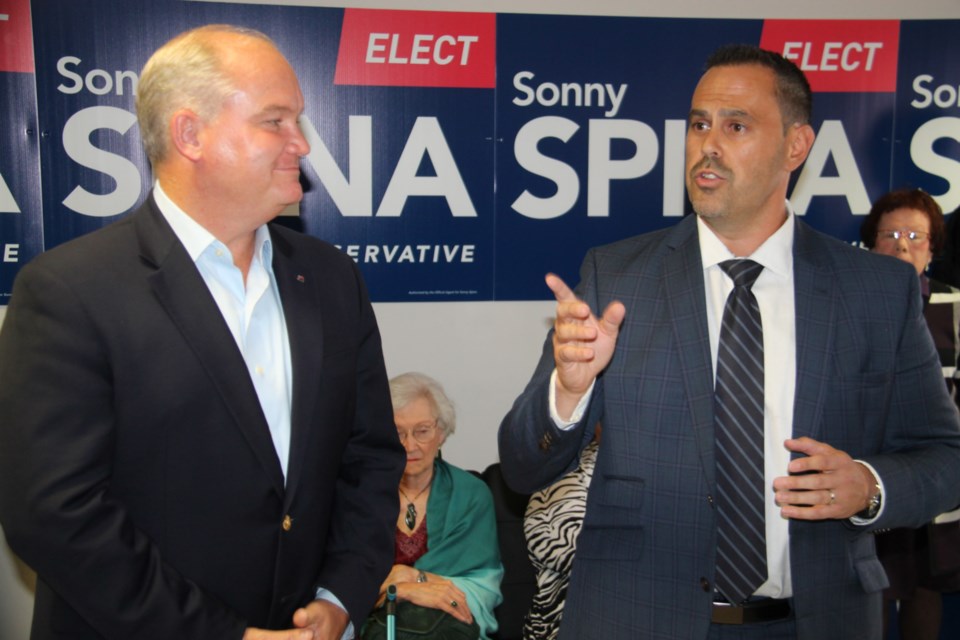While the trade war between the U.S. and China continues, and while the United Kingdom prepares to leave the European Union, it’s a possibility the world’s five major Anglophone countries, including Canada, could form closer trade and cooperation ties with each other if a Conservative government is elected in the upcoming federal vote.
That from Erin O’Toole, Official Opposition critic for Foreign Affairs, speaking to SooToday as Sault Ste. Marie Conservative candidate Sonny Spina officially opened his federal election campaign headquarters Friday.
“For a few years now, Conservatives have talked about a CANZUK proposal, which would involve Canada, Australia, New Zealand and the United Kingdom, to do more with our Commonwealth trading partners, and in particular there’s a lot of interest in the UK for post-Brexit, solidified trading relationships. I would be very interested in enhancing trade with all of those countries, and in security cooperation. The UK, US, Canada, Australia and New Zealand are the Five Eyes,” O’Toole said.
The Five Eyes can be traced to the early Cold War period, comprised of those five major anglophone nations, gathering and sharing intelligence with each other, originally keeping their five eyes on the former Soviet Union, the group ramping up its intelligence gathering and sharing activities since 9-11.
Economically, a Transatlantic Free Trade Agreement (TAFTA) is a proposal for a free trade agreement between Europe and North America, which would include anglophone Canada, the US and the UK.
“We should be doing more. We should be selling ships built in Canada to the Australian and New Zealand navies. We’re modernizing a New Zealand frigate now in Vancouver, for example. So, we have the ability with those democratic, rule of law, strategic allies to do a lot more trade, a lot more intelligence sharing, a lot more collaboration between people,” O’Toole said.
“International students from those countries could perhaps study at a lesser cost than international students from other countries. It would be greater collaboration and it would also show other countries that democratic, rule of law countries do more together, but they have to respect those things like rule of law, human rights, the democratic process.”
“I’d like to see more of that.”
Taking a swipe at the current Liberal government in Ottawa, O’Toole said “right now we’re seeing all trade at risk, in large part due to Justin Trudeau’s progressive trade agenda that even his own officials told him to stop talking about.”
“He didn’t put steel or the auto sector as a priority in the new NAFTA (now known as the USMCA, or CUSMA in Canada). He put climate change and gender, these progressive things that are more about the Liberal brand, ahead of a hard and fast business deal to protect jobs like those at Algoma Steel.”
“We want to get serious,” O’Toole said.
The 2019 Canadian federal election is scheduled to take place on or before Oct. 21.



